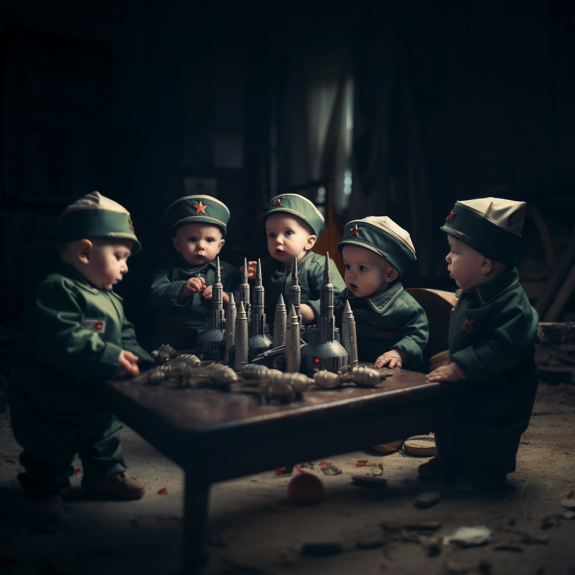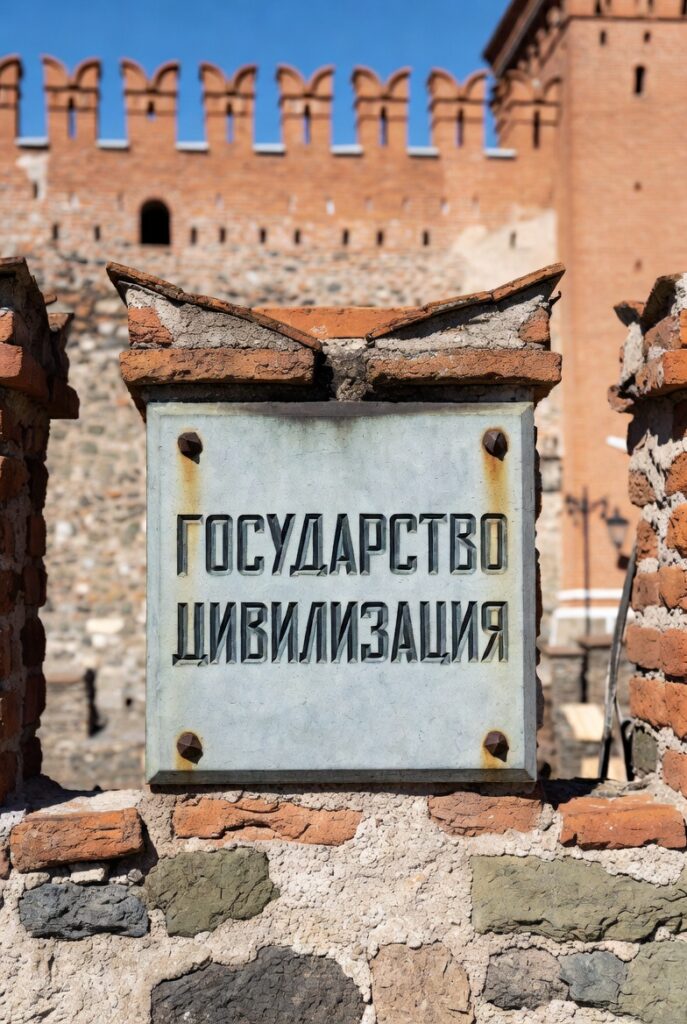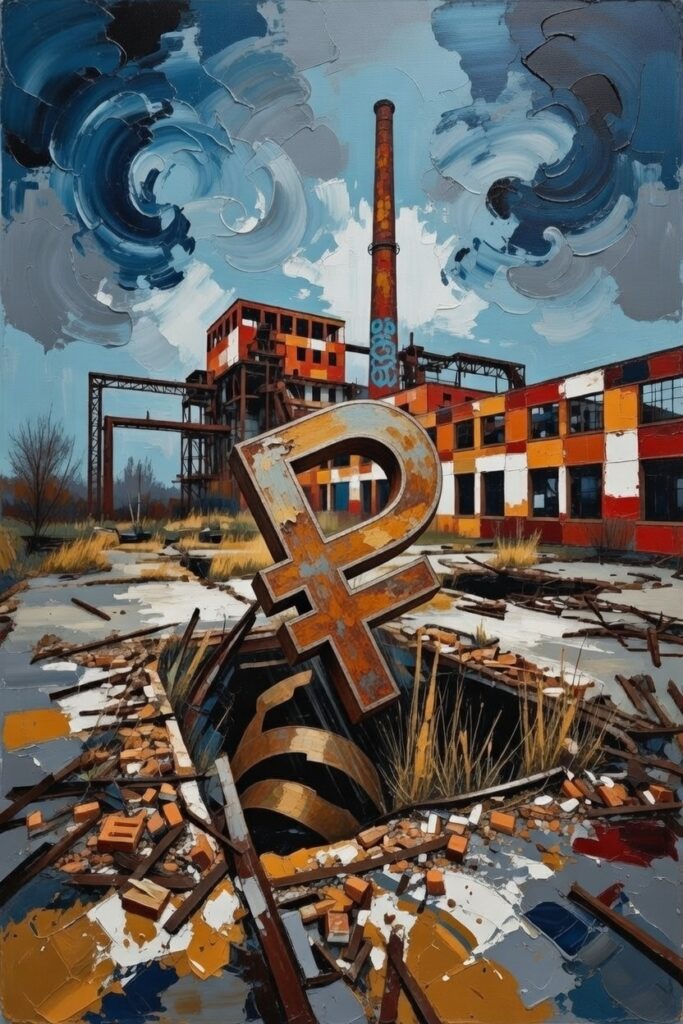Margarita Simonyan, editor-in-chief of Russia Today, suggested on her program that a thermonuclear device should be detonated «on our own territory, somewhere over Siberia» in order to punish the «collective West.» The propagandist was certain that the thermonuclear explosion was not going to cause any serious environmental damage: «What will happen is all electronic devices and satellites would be knocked out.» It will set the world 30 years back, «back to the year of 1993 or so, corded phones, payphones with 2 kopeks per call. I’m telling you, we had a wonderful life back then. I’ll be happy if it happens,» mused Simonyan. The propagandist’s tirade, however shocking, was nothing extraordinary. Her colleagues routinely hinted at the possibility of Russia using nukes against Western countries long before the full-fledged invasion of Ukraine began. Thus, TV presenter Dmitry Kiselyov, for example, claimed that Russia is capable of turning the United States into «radioactive ash.» After the war began, former president and prime-minister Dmitry Medvedev, now vice-chairman of the Security Council, threatened NATO with tactical nuclear weapons. Sergei Karaganov, one of the organizers of the Valdai Forum, the main platform for Putin’s communication with global political experts, has written several times in the last six months that Russia may have to use its tactical nuclear weapons to intimidate the West. Simonyan’s words in this respect were quite mundane, but they did rub the Kremlin the wrong way and it reacted nervously.
Putin’s spokesperson, Dmitry Peskov dismissed Simonyan’s proposal: «Let’s not forget that Margarita does not work in the official power structures, so her words do not always reflect the official position. […] I don’t think such discussions are possible now from an official point of view.» Peskov stressed that Russia has not abandoned a moratorium on nuclear testing.
Headlines in the government-controlled media serve an even better indicator of the Kremlin’s negative attitude towards Simonyan’s statements. Several publications released news items with the headline «Peskov has put Simonyan down a peg.» It’s usually Western politicians or Russian opposition figures — i.e. enemies of the regime — that the Kremlin or «United Russia» party leaders enjoy «putting down a peg.» Peskov’s words are meant to hurt the ego of the RT editor-in-chief, who stresses her closeness to the authorities and, judging by her statements, considers herself one of them.
One should not think that Russia’s top leadership is so peace-loving and rejects any thought of using TNWs to defeat Ukraine (and thus the «collective West» — after all, as Putin has stated on numerous occasions, it is «the collective West» that Russia is at war with). The Valdai Club held another meeting last week. One of the main topics listed in the program was «The role of nuclear weapons and the danger of war that employs them». The session under this title was closed to the press (yours truly learned about it from the journalists who attended the Forum), that is, the organizers decided not to make a big deal out of it, and its closed nature essentially indicates the seriousness of the discussion. Vladimir Putin’s participation in the Forum is another indication of this.
Most likely, Peskov «took Simonyan down a peg» because the topic of nuclear weapons has become very significant for the Kremlin. Constant statements and fantasies about its use produce a lot of white noise. On the one hand, they turn the use of nuclear weapons into something conceivable and even commonplace; on the other hand, they create the feeling that this threat will never be carried out. Talking about these weapons becomes a mere propaganda device, so when a political heavyweight, like Vladimir Putin, needs to talk about them, their words will simply be drowned in this white noise. To be sure, the Russian authorities are quite capable of threatening the world with a bomb, which is exactly what Sergei Karaganov is asking for, hoping that such threats will help Russia to defeate Ukraine. Thus, constant references to nuclear weapons in the public speeches of propagandists become harmful to the Kremlin. Even if Putin wants to bring the topic up in full seriousness (for example, to demand a halt to arms deliveries to Ukraine), the main addressee in the «collective West» will merely shrug its shoulders, since Russia has been threatening the world with its nukes for a long time. Therefore, the Kremlin needs a «nuclear pause» or «nuclear silence» against the backdrop of which the threats of top officials will sound weighty and scary.
Toying with letter «Z»
In recent days, the use of the letter «Z» as a symbol of the ongoing war has been criticised by two figures traditionally seen as closely affiliated with the Russian government. «Z is a bad symbol. It doesn’t mean anything. It is a PR fake. We are fighting under the banner of Spas Nerukotvorny, under the banner of Vladlen Tatarsky: „I look for the resurrection of the dead and the life of the world to come.“ One doesn’t die for the „Z“. One dies for Russia, for Christ, for our people. That’s what we should all say. It is time to peel off this nonsense of „corporate Russia“. Holy Russia, the great empire, is making a comeback to history,» wrote philosopher Alexander Dugin on his Telegram channel. Political scientist Sergei Markov called the letter «Z» «a symbol of tragic mistakes» and also called for it to be abandoned.
Although the press (especially the Western press) calls Dugin «Putin’s favourite philosopher» and even «ideologue», and Markov is introduced as little short of a spokesperson for the Kremlin, their influence should not be exaggerated. Alexander Dugin may be summoned to the presidential administration to participate in ideological brainstorming sessions with other pro-government experts, but this is where his role ends. Markov used to be an MP, but he has long since parted ways with the Kremlin’s political bloc. It is very likely that Dugin’s and Markov’s statements were not dictated from above and were made on their own accord. But this individual initiative of the media ultra-patriots indicates that doubts and discontent are beginning to surface within this group. Of course, they are not going into opposition and are always ready to rally under the flag, but they already doubt the victorious outcome of the war.
In the first months following the full-fledged invasion, when the ultra-patriots were certain that Russia would win the war, they had no time to discuss the letter «Z.» What difference does it make under which flag and symbol one wins? Eighteen months into the invasion, the patriotic part of society has begun to sink into depression: someone had to be blamed for the lack of military success and for the «tragic mistakes», and the letter «Z» became such a culprit. On the one hand, Dugin and Markov’s argument reflects the mystical consciousness of many ultra-patriots: «We chose the wrong symbol, that’s why we’re not winning, let’s find the right one and things will look up». On the other hand, these attacks on the war’s symbol reflect the fragmentation of the previously united patriotic camp. It sprang forth a multitude of «heresies and sects», among which are the admirers of the late Yevgeny Prigozhin, supporters of the Defence Ministry, and both the detractors and fans of the letter «Z.» Instead of the «patriotic unity» and «cohesion» that Kremlin officials talk about, we see disputes and internal confrontations, uncertainty and doubt. And if these disputes and confrontations have began to besot and tear apart the ultra-patriots, what can be surmised about the rest of Russian society, which has not become involved in any active support of the war effort?










